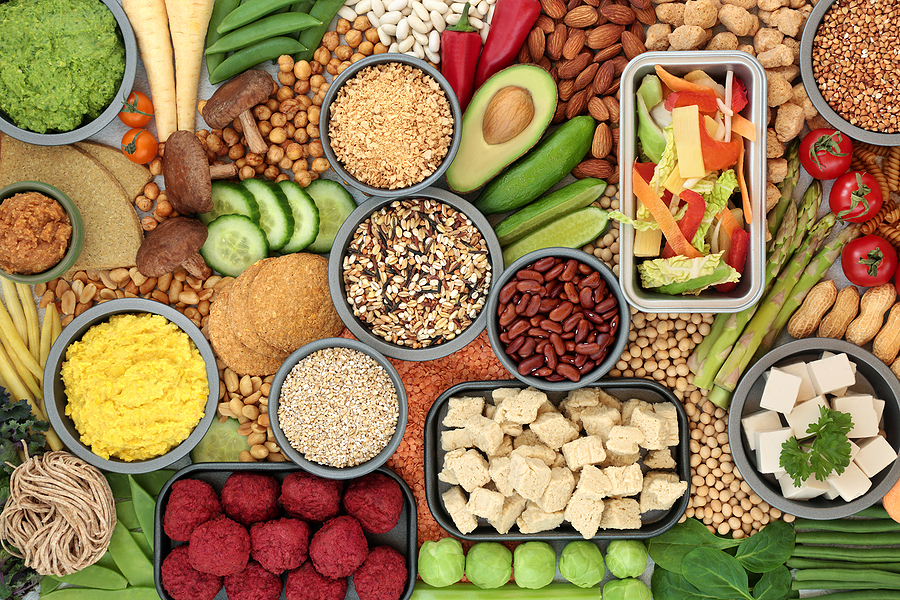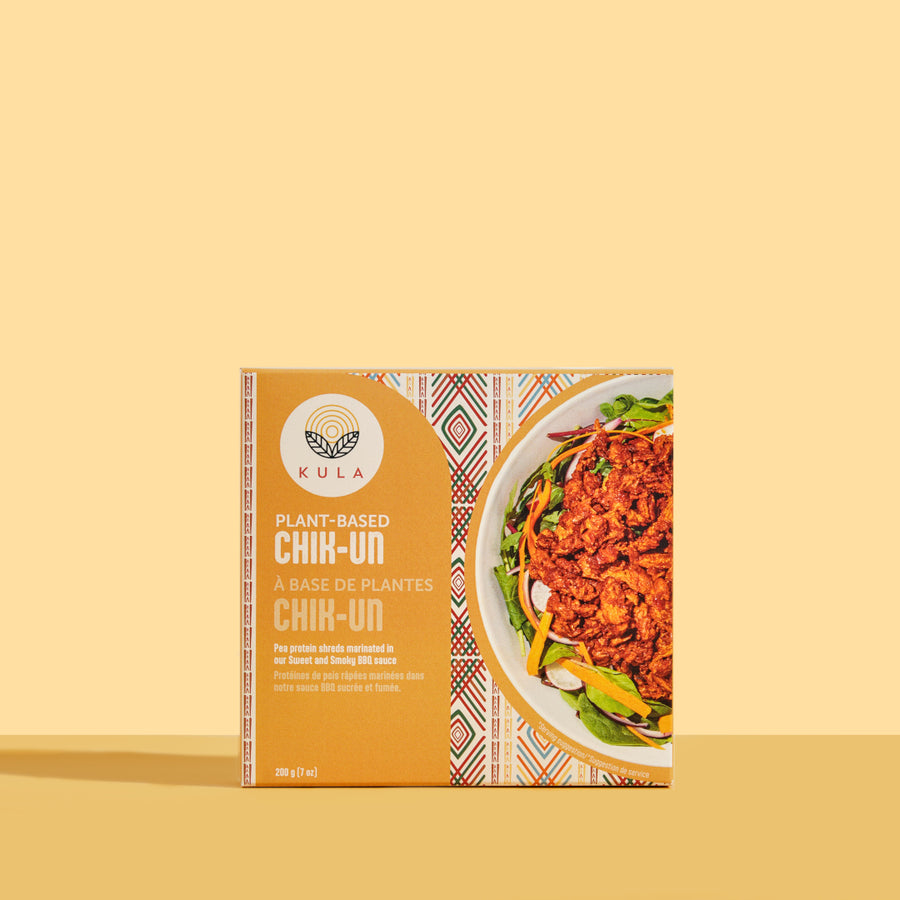Mouthwatering BBQ Sauces That Pair Perfectly with Vegan Proteins
Mouthwatering BBQ Sauces That Pair Perfectly with Vegan Proteins
Blog Article
Everything About Healthy Food: Benefits of Taking On Plant Based Options
The conversation bordering plant-based diet regimens has obtained substantial focus in current years. Lots of individuals are checking out the possible health and wellness benefits, dietary benefits, and ecological impacts connected with these dietary options. As people become more knowledgeable about their food's impact on well-being and sustainability, concerns occur regarding the functionalities of adopting such a lifestyle. What particular modifications can one anticipate, and just how might these options improve not just personal health yet also the planet's future?
Recognizing Plant-Based Diet Plans
Although many individuals associate plant-based diet plans mainly with vegetarianism or veganism, these diet plans can include a variety of consuming patterns that prioritize entire, minimally refined plant foods. Such diets usually consist of fruits, veggies, entire grains, nuts, vegetables, and seeds, while limiting or removing animal items. This adaptability enables individuals to tailor their dietary selections according to dietary needs and personal preferences. Some might take on a mostly plant-based diet plan while still periodically consuming meat or dairy products, typically referred to as a flexitarian approach. The emphasis stays on incorporating even more plant foods, which can cause a varied array of flavors and meals. Comprehending these various analyses of plant-based consuming is crucial for valuing its accessibility and appeal in modern food society.
Health Conveniences of Plant-Based Foods
The health and wellness benefits of plant-based foods are substantial, using a nutrient thickness advantage that supports overall health. Research indicates that these foods can enhance heart health and wellness and play a necessary duty in reliable weight administration. By integrating more plant-based options, individuals might boost their dietary selections and promote long-term wellness.
Nutrient Thickness Advantage
Nutrient thickness plays a vital duty in the health and wellness benefits of plant-based foods, making them an engaging option for those looking for a balanced diet plan. Plant-based foods, such as fruits, vegetables, legumes, nuts, and whole grains, are frequently rich in necessary vitamins, minerals, and anti-oxidants while being lower in calories. This high nutrient density allows individuals to eat less calories while still satisfying their nutritional demands. In addition, these foods are loaded with nutritional fiber, promoting digestive wellness and assisting in weight administration. By incorporating nutrient-dense plant-based alternatives, customers can enhance their total health and wellness, support their body immune systems, and minimize the risk of persistent illness. Ultimately, the nutrient thickness of plant-based foods highlights their value in a health-conscious lifestyle.
Heart Wellness Enhancement

Weight Administration Support
In enhancement to promoting heart wellness, a plant-based diet plan can considerably help in weight management. This nutritional method stresses whole foods such as fruits, veggies, legumes, nuts, and entire grains, which are generally reduced in calories and higher in fiber compared to animal-based items. The high fiber content aids boost satiation, reducing general calorie intake. Plant-based diet plans are usually rich in necessary nutrients while reduced in undesirable fats, making it much easier to keep a healthy weight. Research study shows that people who adopt a plant-based way of life often tend to have reduced body mass indexes (BMIs) and experience more successful weight management contrasted to those who consume meat-heavy diet plans. As a result, welcoming plant-based alternatives is a strategic choice for efficient weight administration
Nutritional Worth of Plant-Based Ingredients
Plant-based ingredients are rich in vital nutrients, using a varied selection of vitamins, minerals, and antioxidants that add to overall health. A comparison of protein sources reveals that while animal items are often viewed as exceptional, numerous plant-based options offer sufficient protein and various other beneficial substances. Recognizing the dietary value of these components can help individuals make educated dietary choices.
Important Nutrients in Plants
Nutrient-rich ingredients found in plants supply a varied variety of vital minerals and vitamins that contribute greatly to total wellness. These components are rich in vitamins A, C, and K, which sustain immune feature, vision, and blood clotting, specifically. Furthermore, plants offer important minerals such as calcium, magnesium, and potassium, critical for heart health and wellness, muscle mass feature, and bone stamina. The presence of fiber in plant-based foods help digestion and advertises a healthy gut microbiome. Anti-oxidants, found perfectly in veggies and fruits, assistance combat oxidative anxiety and decrease swelling. Furthermore, imp source several plant foods are low in calories yet high in nutrients, making them a superb option for those looking for to maintain a healthy and balanced weight while guaranteeing excellent nutrient consumption.
Comparing Protein Resources
Healthy protein resources vary considerably in their nutritional accounts, with plant-based components providing distinct advantages. Unlike animal proteins, which usually have hydrogenated fats and cholesterol, plant proteins have a tendency to be lower in these unhealthy parts. Legumes, nuts, seeds, and whole grains are rich in essential amino acids, fiber, vitamins, and minerals. Lentils offer high protein material alongside substantial iron and folate, while quinoa is a total healthy protein, using all nine necessary amino acids. Furthermore, plant-based healthy proteins are typically accompanied by anti-oxidants and phytochemicals that support general health. The change to plant-based protein resources not just improves dietary intake yet also straightens with sustainable nutritional practices, minimizing environmental effect and advertising long-term wellness advantages.
Environmental Influence of Plant-Based Consuming
As understanding of environment change expands, many individuals are discovering sustainable dietary selections that can significantly minimize their ecological footprint. Plant-based eating has actually become a considerable factor to lowering greenhouse gas emissions, which are mostly related to livestock production. The growing of fruits, grains, veggies, and beans generally needs less resources, such as water and land, compared to animal farming. Furthermore, plant-based diet plans can cause lowered logging, as less land is needed for grazing livestock or growing animal feed. By shifting towards plant-based options, consumers can support biodiversity and promote healthier ecological communities. On the whole, embracing plant-based eating not just advantages individual wellness yet additionally stands for an essential action towards ecological sustainability and preservation initiatives.
Overcoming Common Misconceptions
While numerous individuals recognize the benefits of a plant-based diet, several misunderstandings typically discourage them from fully welcoming this way of life. A common belief is that plant-based diet plans do not have adequate protein; however, various plant sources, such as beans, nuts, and tofu, give adequate protein. Additionally, some assume that this diet regimen is costly, when as a matter of fact, staples like beans, rice, and seasonal vegetables can be fairly inexpensive. One more misunderstanding is that plant-based consuming is overly limiting, whereas it really offers a varied array of foods and tastes. Finally, many stress that a plant-based diet plan might result in shortages, yet with proper planning, individuals can acquire all essential nutrients, including minerals and vitamins, while enjoying a vast selection of delicious dishes.
Tips for Transitioning to a Plant-Based Way of life
Making the change to a plant-based lifestyle can be an improving experience, though it typically calls for some assistance to browse the initial modifications. Initially, individuals are motivated to begin gradually, integrating even more fruits, vegetables, vegetables, and entire grains into their meals while lowering meat and dairy usage. Dish planning is vital; preparing an once a week look here food selection can help relieve the modification and protect against final unhealthy options. Checking out brand-new dishes and cooking approaches can also improve the experience and preserve exhilaration concerning plant-based eating. Furthermore, signing up with support system or areas can give motivation and share beneficial suggestions. Finally, remaining notified concerning nutrition assurances balanced dishes, preventing shortages while cultivating a healthy and balanced, enjoyable plant-based way of living.
Delicious Plant-Based Meal Ideas
Discovering tasty plant-based meal ideas can influence individuals to accept a much more healthy diet plan. One prominent choice is a passionate quinoa salad, featuring cherry tomatoes, cucumber, and a tangy lemon-tahini clothing. An additional favorite is a tasty lentil stew, loaded with carrots, celery, and great smelling natural herbs, perfect for a soothing supper. For morning meal, over night oats made with almond milk, chia seeds, and topped with fresh berries provide a healthy beginning to the day. Additionally, a dynamic veggie stir-fry with tofu and a selection of vivid veggies can be a fast yet satisfying meal. Creamy avocado toast on whole-grain bread, sprayed with seasonings and seeds, supplies a simple yet flavorful treat. These dishes showcase the selection and richness of plant-based eating.

Often Asked Questions
Can a Plant-Based Diet Regimen Supply Enough Healthy Protein?
The concern of whether a plant-based diet can give adequate healthy protein is typical. Various resources, including beans, nuts, seeds, and entire grains, can meet healthy protein needs properly, supporting a nourishing and balanced diet regimen for individuals.
Are Plant-Based Diet Regimens Appropriate for Children?
The viability of plant-based diets for kids depends on cautious preparation. Sufficient nutrients have to be ensured, consisting of proteins, vitamins, and minerals. With appropriate advice, such diets can sustain healthy and balanced growth and advancement in youngsters.
How Do I Eat Out on a Plant-Based Diet regimen?
Eating in restaurants on a plant-based diet plan entails seeking restaurants with varied food selections, asking for adjustments, and discovering vegan-friendly options. Planning in advance and connecting nutritional preferences can enhance the dining experience while keeping nutritional choices.
What Are Typical Irritants in Plant-Based Foods?
Usual irritants in plant-based foods consist of soy, gluten, nuts, and seeds - Sugar Free Sauces. People adhering to a plant-based diet ought to understand these allergens and check out tags meticulously to avoid adverse reactions and ensure secure intake
Can Plant-Based Diets Aid With Fat Burning?
Research indicates that adopting a plant-based diet may help with weight-loss because of its commonly reduced calorie thickness and greater fiber material. This mix can improve satiety, assisting individuals manage their caloric consumption properly. Several individuals connect plant-based diet plans generally with vegetarianism or veganism, these diet plans can encompass a wide range of consuming patterns that focus on entire, minimally processed plant foods. Nutrient density plays an essential role in the wellness advantages of plant-based foods, making them a compelling choice for those seeking a well balanced diet plan. Plant-based diet plans have been revealed to substantially boost heart health and wellness, as they typically include elements that sustain cardiovascular function. In enhancement to his explanation promoting heart health, a plant-based diet can substantially help in weight management. An usual idea is that plant-based diets do not have adequate healthy protein; nevertheless, various plant resources, such as vegetables, nuts, and tofu, provide enough protein.
Report this page